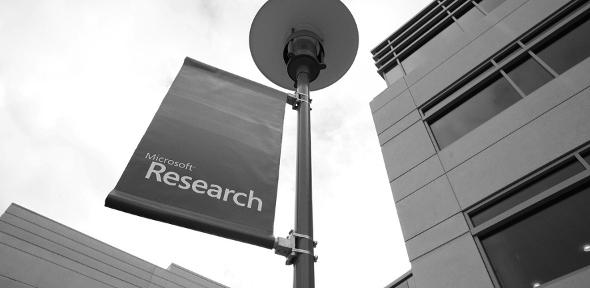
It's not every day that Microsoft buys your latest invention, but that's what happened to Dr Adrian Travis, a Cambridge Engineering academic. His idea for thin, wedge-shaped light guides has been snapped up by the computer industry colossus to drive a whole new way of interfacing with computers. The new light-guides can project and image light at the same time, enabling a host of products to improve the human-computer interface.
I am delighted to receive this award, which I hope will be seen to acknowledge work by a remarkable group of forward thinking people on some ideas I had.
Dr Adrian Travis
Adrian, now a Senior Scientist at Microsoft Corporation in Redmond, USA, has won a prestigious Royal Academy of Engineering Silver Medal for his outstanding personal contribution with a commercial benefit to British engineering - Academy President Lord Browne of Madingley presented him with the medal at the Academy Awards Dinner in London on Monday 9 June.
Adrian, aged 45, invented a new class of light-guide that works as a flat lens and essentially eliminates the distance a projector needs to be placed from its screen. This opens the way to flat projection and imaging devices.
Cambridge FPD Ltd was set up in 1999 to commercialise Adrian's ideas. It developed and licensed its optical technology for a new, portable X-ray security scanner that is so thin it can even be slid down behind bags left beside walls.
"Adrian is a great innovator," says Professor John Carroll FREng, who was Adrian's PhD supervisor. "At university he invented toy bricks that could be stacked up into simple electrical circuits to teach children about electricity. He has an excellent record of patenting and commercialising his inventions and his ultra-thin light-guides are revolutionary."
Adrian comments "I am delighted to receive this award, which I hope will be seen to acknowledge work by a remarkable group of forward thinking people on some ideas I had."

